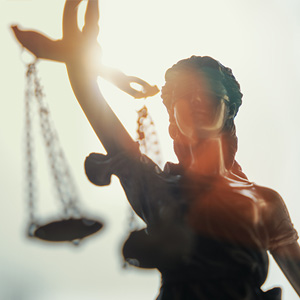Experts Debate Bluetooth Contact Tracing as COVID-19 Response
May 28, 2020
While the COVID-19 death toll continues to climb in the country, states are turning to tech-enabled contact tracing to start lifting restrictions and to contain the spread of the coronavirus, a tactic that privacy experts debated during a recent Center for Democracy & Technology webinar.
Contact tracing, which has been used in pandemics historically, involves the extensive interviewing of people who have contracted the virus, followed by calls to those the infected individuals may have encountered and instructions on how to limit the spread further. In the case of the coronavirus pandemic, some countries have used contact-tracing apps in their containment efforts.
Recently, Google and Apple have registered Bluetooth contact-detection functions that are intended to automate the process. In a Bluetooth tracing scenario, for example, two people who have downloaded a Bluetooth-enabled app and who have spent a period of time in close proximity will register the contact on their phones with an anonymized token. If one of them later tests positive for the novel coronavirus, the app would notify the other person that he or she has been exposed to someone with the virus. The app doesn’t reveal who was infected or where the contact occurred. In fact, the app developers have restricted the program’s ability to record and share location data in an attempt to avoid abuse by governments or other parties.
Albert Gidari, consulting director of privacy for Stanford Law School’s Center for Internet and Society, said Bluetooth tracing saves lives, arguing that traditional contact tracing is less useful, less comprehensive, and more intrusive. Bluetooth-enabled tracing apps could get the job done where manual contact tracing would fail, he said.
Gidari also cited the speedy response from such apps. Manual contact tracing could take days to establish a less comprehensive contact list, while a Bluetooth-enabled app could provide that information almost instantaneously, he said. He also stressed that the real risk lies in not implementing an effective program immediately.
Neema Singh Guliani, senior legislative counsel for the American Civil Liberties Union’s Washington Legislative Office, argued against the technology, saying that little evidence exists to support the proposition that the app works. Guliani also said there was no indication how benchmarks might be developed to support or refute the notion that such a system was working. Manual contact tracing, she said, is a well-established response mechanism, and one that does not leave out the poor and elderly, many of whom don’t own a smartphone.
Guliani also expressed concern that regardless of the limitations set by app developers, these technologies could ultimately fail to adequately protect individuals. Would private actors such as employers and landlords require the use of the app as a condition on employment or housing, she asked. If so, the consequences could be significant. Violations of rights could deepen the public’s distrust of governmental responses and actually damage response efforts, Guliani said.
Asked what it would take for such a system to work, Guliani said there would need to be evidence of efficacy and a proactive approach to transparency, as well as regular auditing.
Gidari agreed, but he also insisted that the most important issue was public health. There is time to build a regulatory structure, he said, but no time to hesitate about the implementation of tools to assist in responding to the crisis.
The program was the second in a webinar series held by the Center for Democracy & Technology on the technological responses to the COVID-19 crisis.





